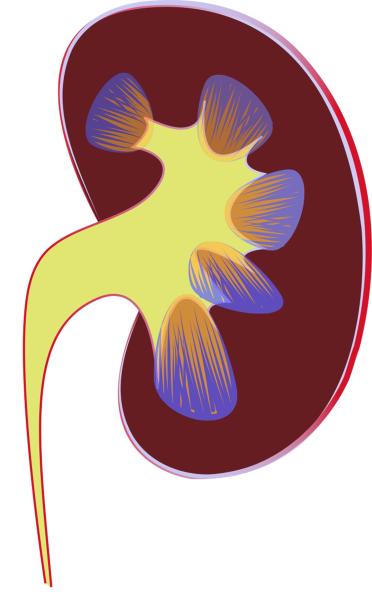The story of a two-year-old toddler in need of a kidney transplant has made the news. Apparently, A.J. Burgess’ father is a match and was set to donate his organ and begin the steps necessary to do so when a parole violation threw a wrinkle into the plan.
Anthony Dickerson was to start the process upon his prison release, but was reportedly “returned to jail for violating his parole again for possession of a firearm or knife during the commission of or attempt to commit certain felonies.” It was then A.J.’s mother, Carmellia, says the hospital told them the transplant would be put on hold and reassessed after Mr. Dickerson demonstrates “good behavior for three to four months before you can give your son the kidney.”
It has been reported A.J. was born prematurely without functioning kidneys and spent ten months of his life in the neonatal intensive care unit. His mother maintains he is now on daily dialysis, in need of bladder surgery and had a prior stroke – she worries a potential January 2018 transplant date might be too late endangering his survival.
Due to privacy laws, the hospital is limited by what it can disclose regarding any specific patient and has not commented on whether a probation violation or arrest would impact decisions to move forward with transplants, in general. In an emailed statement, Emory Healthcare spokeswoman Janet Christenbury provided these remarks, “Guidelines for organ transplantation are designed to maximize the chance of success for organ recipients and minimize risk for living donors…Transplant decisions regarding donors are made based on many medical, social, and psychological factors.”
What factors into decisions for organ transplants?
With any organ transplant, there are many considerations before proceeding with the donation. Is the patient sick enough to face the risks, but well enough to withstand them? Does the recipient have familial support to optimize his chances of survival? Can the patient be compliant with an extensive medication list, blood and other diagnostic testing, and very frequent, multi-disciplinary specialist visits? In the case of a living donor, is he healthy enough to participate and comply with post-operative care to elude complications? Will the patient and the donor survive surgery?
Upon transplant, a patient is placed on anti-rejection medications that weaken his immunity so as to preserve the donated kidney. Otherwise the body might think it is foreign and destroy it—this situation is life-threatening. A delicate dance is in the works between preventing the body from attacking this organ and not impeding the body’s defenses too much to place a person at increased risk of significant infection. Close monitoring is required to ensure these drugs don’t plummet a patient’s white blood cell counts which when at ideal levels help us fight infection. It is also essential for a protracted period of time post-transplant to survey repeatedly if any signs of rejection appear. Being in close proximity to the transplanting institution can be mandated for a sustained period of time. Early medical treatment for signs of acute or chronic rejection and infection are extremely important. Interventions and hospitalizations can be necessary should such situations arise.
The transplant team can involve transplant surgeons and dedicated nurses, nephrologists, urologists, physical therapists, dieticians, social workers, transplant coordinators as well as anesthesiologists, pharmacists, respiratory therapists, hematologists, infectious disease experts etc. These and more team members can be a part of the pre- and post-operative care, and the surgery too. Intensive care units are a part of the process.
Strict adherence to the regimen of medications post-transplant is very important. The first months out usually require higher doses to avoid rejection. Additional drugs are given prophylactically to ward off acquiring certain infections if exposed.
What are success rates?
Fortunately, because of modern medical advances in better surgical techniques, more effective treatments for infection and refining of anti-rejection medications survival rates in children have dramatically improved. An analysis of 1,056 medical records of pediatric kidney transplants was published in the Journal of the American College of Surgeons. The study principal investigator Srinath Chinnakotla, MD, FACS, an associate professor in the Department of Surgery at the University of Minnesota Masonic Children’s Hospital in Minneapolis, where the study was performed, said: “The outlook for infants and children with end-stage kidney disease was once dismal, with poor survival rates after transplant…There has been great progress in pediatric kidney transplantation, and now the patient survival rate is almost 100 percent.” The numbers are even better when a living-donor is used.




